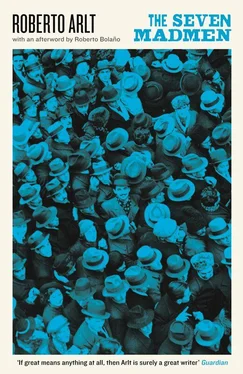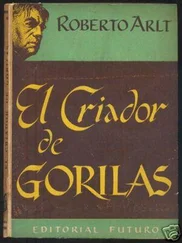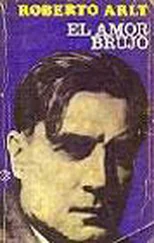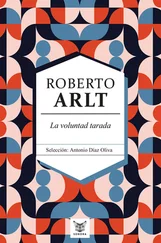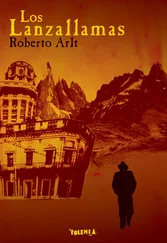Erdosain was staring out through the rectangles made by the window frames at the scarlet stains in the tops of the pomegranate trees. A golden strip of sunlight lit the upper half of one wall in the room. A vast sadness overwhelmed his heart. What had he done with his life?
The Astrologer noted how silent he had become, and said: “Look, Erdosain, there’s nothing for it but to risk everything or give up now. That’s the way things are. It’s sad … but what else are we to do? I know it would be much nicer if these things could be done without any sacrifice …”
“The thing is, in this case it’s someone else we’re sacrificing …”
“And ourselves, Erdosain, don’t forget we’re risking prison and sacrificing our freedom for God knows how long. Have you never read Plutarch’s Parallel Lives ?”
“No …”
“Well, I’ll lend you the book, then you’ll discover that human life is worth less than a dog’s, if it’s a matter of sacrificing that life to change the direction of society. Can you imagine how many murders it takes for someone like Lenin or Mussolini to triumph? People don’t want to know … why? Because Lenin and Mussolini came out on top. That’s the only thing that matters, that’s what justifies any cause, just or unjust.”
“Who’s going to kill Barsut?”
“Bromberg, the Man Who Saw the Midwife.”
“You didn’t tell me that …”
“There was no reason to, we’d already settled it.”
A wave of fragrance inundated the room. The sound of water dripping into the rainbutt stood out clearly.
“So who exactly knows about this?”
“You, me and Bromberg …”
“Too many people to keep a secret …”
“No, because Bromberg is my slave, and what’s worse, he’s his own slave.”
“That’s all very well, but what I want from you is a signed piece of paper in which you and Bromberg confess to being the perpetrators of the crime.”
“What do you want that for?”
“To make sure you don’t double-cross me.”
The Astrologer absent-mindedly pushed his hat down, then cupped his mongoloid face in his thick fingers, and walked towards the centre of the room, resting his elbow in the palm of his other hand. He took up again:
“I have no problem giving you what you’re asking for, but just remember this. My life is totally devoted to carrying out my idea. Great times are just around the corner. I don’t have the time or the inclination to tell you of all the wonders that are about to happen. There’s no doubt a new age is dawning. Who will see it? The elect. And the day I can find someone to take over once the idea is launched, I’ll retire to the mountains to meditate. Until then, everyone around me owes me complete obedience. That’s something you must understand, if you don’t want to go the same way as Barsut …”
“That’s no way to talk.”
“Yes it is, because I am going to sign the piece of paper you’ve asked me for.”
“I don’t need it …”
“Will you need money?”
“Yes, 2,000 pesos to …”
“I don’t want to know. You’ll get it …”
“And also, I don’t want anything to do with the brothel side of things …”
“Fine, you can look after the accounts; but d’you know what we’re missing as of now? We need to find some vulgar symbol that will rouse the masses …”
“Lucifer.”
“No, that’s a mystical symbol … too intellectual … what we need is something cheap and stupid … something that appeals directly to the senses of the masses, like the black shirt … that devil is a genius, you know. He realised that the Italian people have the psychology of barbers and comic-opera tenors … Anyway, we’ll see … I’ve already had an interesting idea for the different hierarchies in our society … we can talk about it some other day … it might work …”
“The thing is for us to be self-supporting …”
“That goes without saying… the brothels will make money … But, look here, aren’t you going to see Barsut? Have you thought what you’ll say to him?”
“Yes …”
Erdosain went out to the coachhouse, where the stables were. It was a heavy stone building with a lot of empty, rat-infested rooms on the top floor. In one of them lived, or rather slept, the sinister Bromberg, whom Erdosain had seen the day of the kidnapping.
Erdosain realised he was getting ever deeper into something which was bound to ruin his life in ways he could not even imagine, and this realisation, coupled with his complete lack of enthusiasm for the Astrologer’s plans, gave him the feeling of play-acting, of deliberately creating this absurd situation. “Everything had failed in me,” he was to tell me later; and yet he overcame his fatigue and his indifference and carried on towards the coachhouse. His heart was pounding at the thought of “meeting the enemy”. He furrowed his brow and his anger showed plainly on his face.
He undid the padlock, loosened the chain, and with a sudden surge of curiosity slid back one of the sliding doors. Barsut was sitting in his undershirt, about to eat, in a circle of yellow light cast on to a pine table by a kerosene lamp.
Above him hung the metal triangle of a feeding-rack in a wooden horse stall. When he saw Erdosain scowling at him, he paused in the act of pouring oil on to a plate of cold meat and potatoes, but then, without a word to show his surprise, immersed himself once again in his nutritious task. He stretched out, took a pinch of salt between his fingers, and sprinkled it on the potatoes. He kept an air of studied composure even though his black armpit was clearly visible through a hole in the red undershirt.
The way Barsut stared intently down at the meat showed he placed far more importance on his meal than on Erdosain, who was standing only a few paces from him. The rest of the stable was in darkness. Shafts of sunlight slanted down through chinks in the walls, tracing porous gold discs in the dust of the floor.
Barsut would not deign to look up. He steadied the loaf of bread on the table, hacked off a piece, and poured himself some soda water, first carefully squirting some on to the ground to clean the nozzle. Then he bent over still further to read a paperback by the side of his plate, while he chewed on a mouthful of meat, bread and potatoes.
Suddenly sickened by the smell of hay, Erdosain leant against a pillar holding up the roof. He peered through narrowed eyes at Barsut, half of whose face was dimly lit by the green glow from outside, while his moving jaws stood out in the harsh lamplight. It was then Erdosain noticed a whip hanging from the wall.
Erdosain started at the sight. It had a long butt and a short lash. Following his gaze, Barsut curled his lip derisively. Erdosain looked first at the whip, then at the prisoner, and a smile spread across his face. He went over to the corner and unhooked the whip. Suddenly Barsut was on his feet, his body straining out of the box, as he stared wildly at him. The veins bulged in his neck. He was about to speak, but his pride kept him from saying a word. A sharp crack rang out. Erdosain had snapped the whip against the wooden partition to see how supple the leather was. But then he merely shrugged his shoulders, and a streak of black flashed across the rays slanting down through the darkness, as the whip fell on to the hay.
Erdosain walked silently up and down the stable. He thought of the life he was holding in his hands, but the feeling made him no happier. Above the stall partition, Barsut was gazing through the open front door at the sunlit field outside.
Things had changed. That was all there was to it. Erdosain stared angrily at Barsut and asked: “Are you going to sign the cheque or not?”
Barsut shrugged; Erdosain did not repeat his question. Perhaps one day at this very same hour he would find himself in some dark cell where suddenly like Barsut his memory would conjure up the scene of a red clay court by a riverside, the sky framed through the strings of young girls’ tennis racquets. He was unable to prevent himself shouting out, more to himself than to Barsut:
Читать дальше
